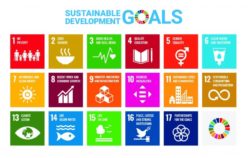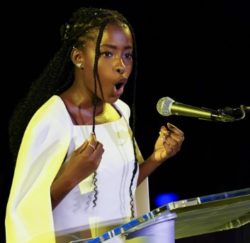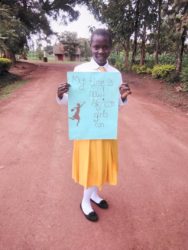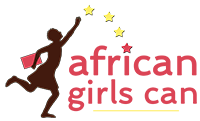
The United Nations convened its 77th General Assembly in mid-September, 2022. This was the first entirely in-person General Assembly meeting since the start of the pandemic.
In addition to the war in Ukraine, the status of the citizens of Afghanistan, and many other critical global issues, this was a time to review progress on the 17 Sustainable Development Goals against their 2030 deadlines. Of particular interest to girls’ education advocates:
#4 Quality Education
The Malala Fund just released a “Report Card” showing individual countries’ progress in this area. The score includes aspects such as financial barriers, child marriage, programs to reduce violence, labor market opportunities, and role models. The odds of achieving Universal Quality Education in the next 8 years are discouraging.
#5 Gender Equality
UN Women also recently issued a “Gender Snapshot” showing that the world is NOT on track to achieve gender equality by 2030. Global health, climate, and humanitarian crises have further increased risks of violence, especially for the most vulnerable women and girls.
Youth Speak Up
Education was given priority within the UN schedule, recognizing that there is a global education crisis stemming from inequity (socioeconomic, as well as gender based) and exacerbated by the lost in-school time caused by the COVID-19 pandemic.
Experts and advocates came together for the Transforming Education Summit that was held in New York September 20-21, 2022. This includes the Global Feminist Coalition, which is comprised of established and impactful Civil Society Organizations, such as Amplify Girls and BRAC, that reach more than 370,000 children globally. The grassroots experiences of these organizations will shape education in the future.
In addition to discussing continued barriers (ongoing and new) to education, there is a focus on WHAT and HOW do students learn.
- Are they learning practical skills (budgeting, entrepreneurship) that will give them the ability to earn a decent wage?
- Are they learning the soft skills (leadership, teamwork, communication, planning) that will lead to fulfilling personal and professional lives?
Organizations such as Girls Livelihood and Mentoring Initiative (GLAMI) in Tanzania, which just won the 2022 UNESCO Prize for Girls’ and Women’s Education, and Educate! in East Africa (Uganda, Kenya, Rwanda) are proven leaders in introducing these important skills to students in an extra-curricular fashion. Governments are taking notice – they are making some headway in bringing their approach into the main classrooms in the countries where they work.
 Youth themselves addressed many of these concerns in their own 25-point Youth Declaration. This first of its kind document was formed with the input of 450,000 young people at various meetings and grassroots efforts around the world in the months leading up to the Summit. 170 countries and territories were represented. The key takeaway:
Youth themselves addressed many of these concerns in their own 25-point Youth Declaration. This first of its kind document was formed with the input of 450,000 young people at various meetings and grassroots efforts around the world in the months leading up to the Summit. 170 countries and territories were represented. The key takeaway:
“Youth have a collective sense of urgency to address the global education crisis and other simultaneous and interconnected global challenges, like the climate crisis. They recognize their key role as active agents of positive change in addressing these crises and ensuring true transformational change…”
Read the entire Declaration and you’ll see that they have a vision for how education should be!
And, speaking of vision,
“Do Good so that the World Might be Great”
 Poet Amanda Gorman helped open the UN session with a new poem she wrote for the occasion, An Ode We Owe. She created it with “hopes of bringing all nations together to tackle various issues of disparity along with preserving the planet.” These passages give a flavor of the piece. Watch Amanda recite the entire poem.
Poet Amanda Gorman helped open the UN session with a new poem she wrote for the occasion, An Ode We Owe. She created it with “hopes of bringing all nations together to tackle various issues of disparity along with preserving the planet.” These passages give a flavor of the piece. Watch Amanda recite the entire poem.
Equality doesn’t mean being the exact same,
But enacting a vast aim:
The good of the world to its highest capability.
The wise believe that our people without power
Leaves our planet without possibility.
Therefore, though poverty is a poor existence,
Complicity is a poorer excuse.
…
This morn let it be sworn
That we are one human kin,
Grounded not just by the griefs
We bear, but by the good we begin.
To anyone out there:
I only ask that you care before it’s too late,
That you live aware and awake,
That you lead with love in hours of hate.
…
Above all, I dare you to do good
So that the world might be great.
 The Department of Education in Uganda used the extended time during pandemic school closure to begin to address the “what” and the “how” of its educational system. Teacher quality and training are also being examined.
The Department of Education in Uganda used the extended time during pandemic school closure to begin to address the “what” and the “how” of its educational system. Teacher quality and training are also being examined.
The school in the city of Lira, in Northern Uganda that African Girls Can students attend, St. Katherine, has made curriculum changes. We’ll report on those improvements in the future.

